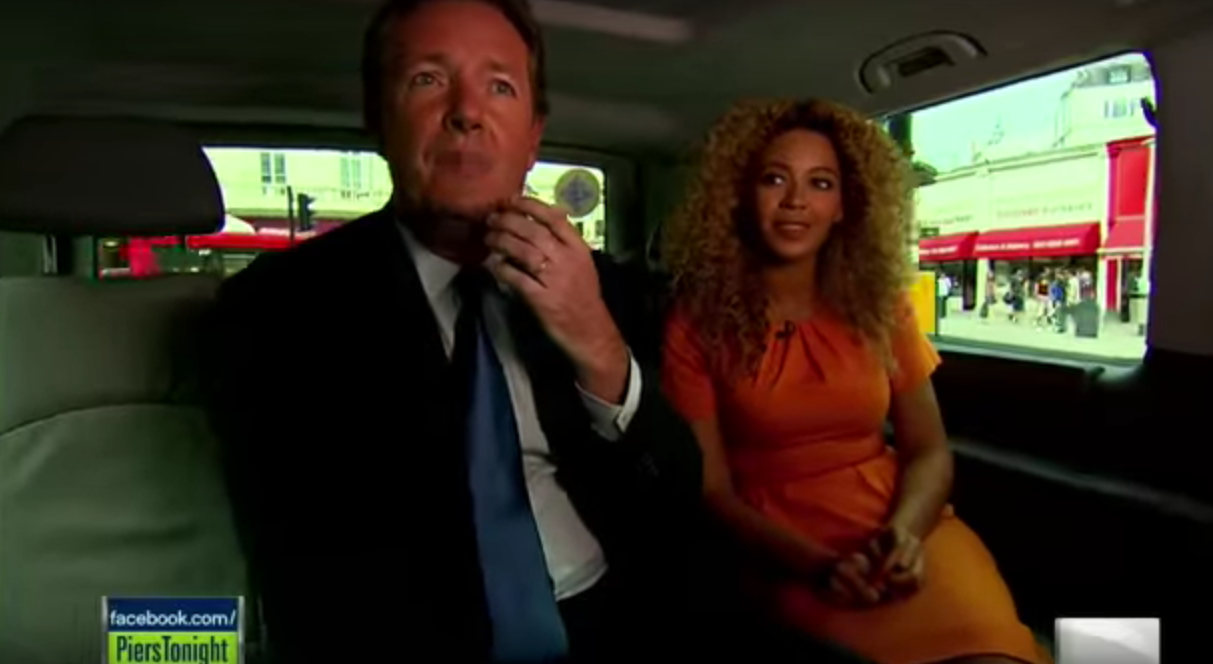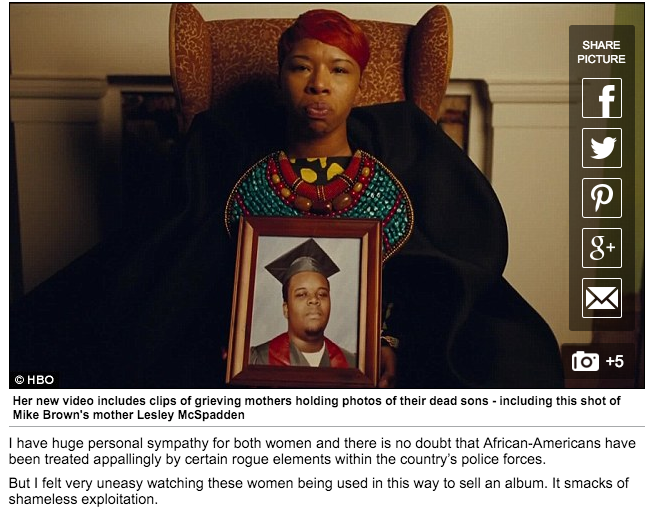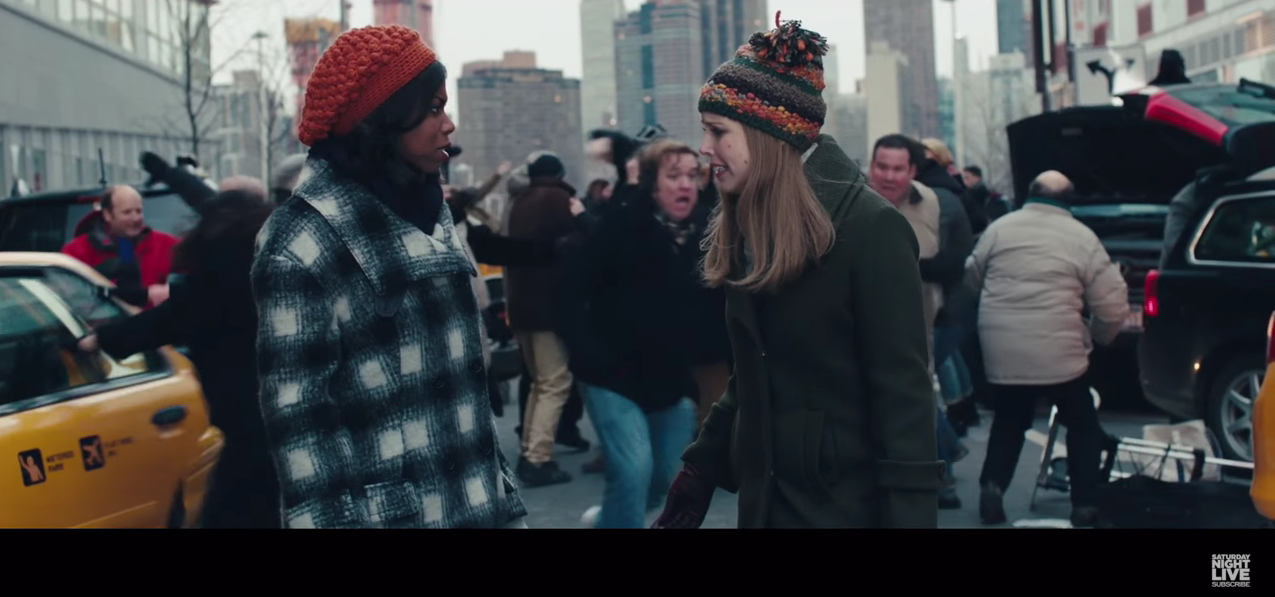Piers Morgan Tries to Slam Beyoncé by Calling Her a 'Born-Again Black Woman'

By:
A British middle-aged white man gave his hot take on American Black art. Piers Morgan decided that the world needed his feelings on Beyoncé's newly released visual album "Lemonade." He thinks Beyoncé is using the "race card" to make money.
Morgan wrote a column Monday with the headline calling Beyoncé a "Born-again Black woman" and lamenting when entertainers "go all political." He said that Beyonce is exploiting the racial political climate to make money and that her appeal is beyond race.
"I never like it when entertainers go all political. The cynic in me believes it’s rarely done for genuine reasons but for strictly commercial ones."
Twitter was not receptive to his anti-Bey antics. Morgan got dragged:
Before Morgan tried to slam Beyoncé's politics in her visual album, he compliments her as a person. Morgan talks about meeting Beyoncé during his now-canceled show "Piers Tonight."
"I once spent a delightful day with her in London for CNN and she was bright, warm, funny, sharp and incredibly impressive."
 Youtube/Beyoncé - youtube.comBut after his initial compliments, the article makes it seem like Morgan recently found out that Beyoncé is Black, and it makes him uncomfortable. He spends a significant portion of the article building up Beyoncé's audience as multicultural and then he tries to use her own statements about her personal experience with racism against her political interests.
Youtube/Beyoncé - youtube.comBut after his initial compliments, the article makes it seem like Morgan recently found out that Beyoncé is Black, and it makes him uncomfortable. He spends a significant portion of the article building up Beyoncé's audience as multicultural and then he tries to use her own statements about her personal experience with racism against her political interests.
"‘Did you experience racism as you grew up?’ I asked.
"‘A bit, but I feel like with my career I’ve now broken barriers. I don’t think people think about my race. I think they look at me as an entertainer and a musician and I’m very happy about that because that’s how I look at people. It’s not about color and race, and I’m happy that’s changing.’"
The assertion here is that because Beyoncé is a global artist, and her race has not stopped her from success, her race no longer matters. Morgan is trying to make the argument that her current Black political activism is somehow at odds with her music's crossover appeal.
He said that he's particularly troubled by Beyoncé featuring the mother's of both Michael Brown and Trayvon Martin holding pictures of their dead sons.
 Dailymail.com - co.uk
Dailymail.com - co.uk
"I have huge personal sympathy for both women and there is no doubt that African-Americans have been treated appallingly by certain rogue elements within the country’s police forces. But I felt very uneasy watching these women being used in this way to sell an album. It smacks of shameless exploitation."
Morgan really wants the old Beyoncé back, the one who was nice to him in the car, and sang pop songs that didn't make him uncomfortable.
"But I have to be honest, I preferred the old Beyoncé. The less inflammatory, agitating one. The one who didn’t use grieving mothers to shift records and further fill her already massively enriched purse. The one who didn’t play the race card so deliberately and to my mind, unnecessarily. The one who wanted to be judged on her stupendous talent not her skin color, and wanted us all to do the same."
Unfortunately for Morgan and anyone with similar feelings, we have to tell you that Beyoncé was always Black. She was actually born that way and she is certainly not the first artist to get political about racial topics or anything else. But Morgan is not the only white person to be confused abut this. After Beyoncés controversial Superbowl performance of her Black pride anthem "Formation" earlier this year, Saturday Night Live did a skit mocking the idea that white people recently realized that Beyoncé is Black when she became political.
 Youtube/Saturday Night Live - youtube.com
Youtube/Saturday Night Live - youtube.com
The skit called "The Day Beyoncé Turned Black" takes place in New York City, and the "Formation" performance causes the apocalypse. The Black people in the skit are confused because, well, Beyoncé was always Black.
Also Beyoncé is not the first hugely successful artist to speak out about political issues and bring activism into her work. There is a long list of successful artists who continued to speak out on political issues after they reached massive fame, including two deceased Black mega-artists Michael Jackson and Prince.
Like Beyoncé, Michael Jackson also said that race did not stop him from becoming a super-star, according to Billboard.
"I think I've gotten a fair shake. Anything that happened negatively, I don't think had to do with the color of my skin," he said.
However that didn't stop Jackson from fighting Sony executives on actions that he believed were racially motivated and standing up for other Black artists. He told his fans that supporting him in his fight was "fighting for all black people, dead or alive."
Prince told Mojo that the entertainment industry is less forgiving on Black people.
“It’s like Chris Rock said: Leonardo DiCaprio can make one bad movie after another, and he just keeps going. Chris Rock makes a bad movie, and he doesn’t work again, " he said. "Black people aren’t allowed to make mistakes.”
He worked with #YesWeCode to help more minorities get into tech jobs, according to USA Today. He wanted young tech kids to be able to wear hoodies like Mark Zuckerberg and not be thought of as "thugs."
Prince also reportedly gave money to Trayvon Martin's family before he passed away and called the Rev. Al Sharpton to keep up with political issues in the Black community, according to the New York Daily News. He spoke out about the Black Lives Matter movement at the Grammy Awards in 2015, according to KPCC.
"Albums still matter," said Prince. "Like books and Black lives, albums still matter. Tonight and always."
There are also many successful white artists who speak out about political issues. Bruce Springsteen, an artist widely considered to be a symbol for working class Americans, performed in a fundraiser called "Shining a Light: A Concert for Progress on Race in America" to bring attention to mass shootings and the Black Lives Matter movement.
You can be a successful artist with multicultural appeal and still care about race and politics.
Like these mega super-stars Beyoncé has had incredible financial success, which is doesn't correlate with Morgan's argument that she exploits the "race card" for financial success. By Morgan's own admission Beyoncé gets money. It's hard to know exactly what someone is thinking, but Beyoncé doesn't need to play the "race card" to sell albums or to make more cash. She made $54.5 million dollars last year, according to Forbes.
